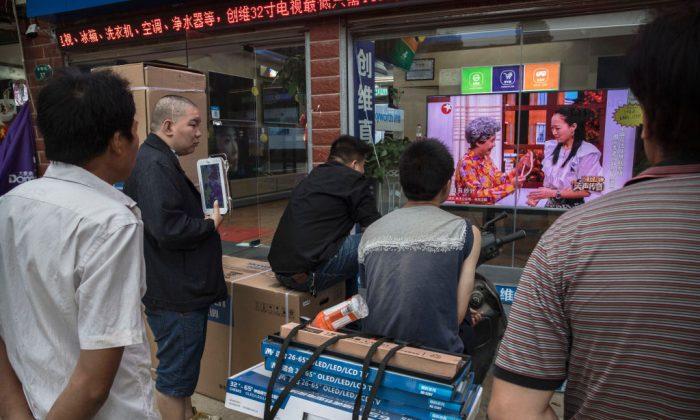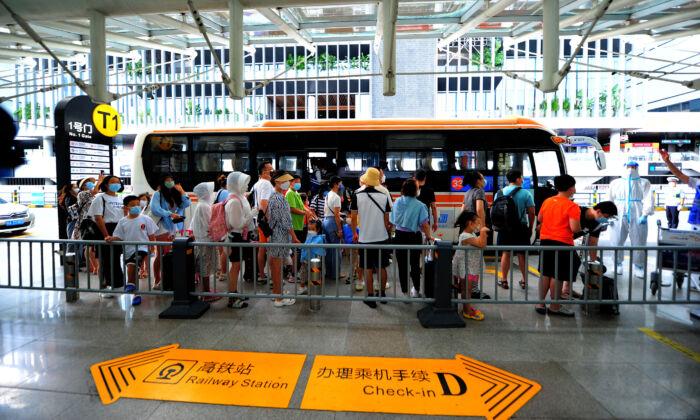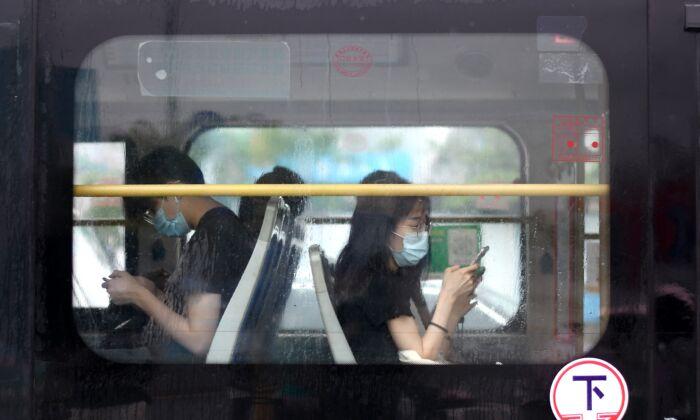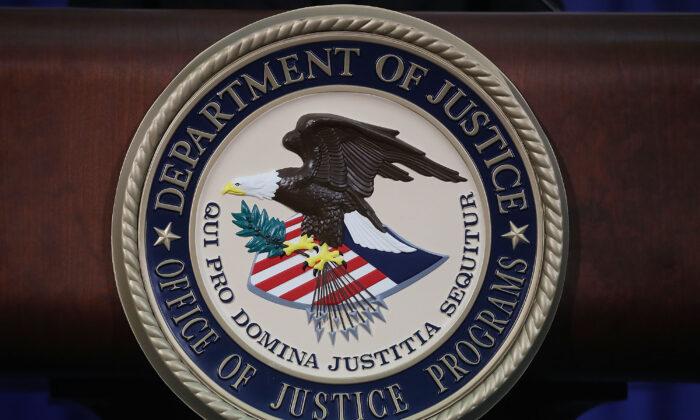The Chinese regime on Sept. 20 published new regulations for TV and radio stations to limit foreign content and the presence of foreign actors onscreen. On the same day, the official media reported that school textbooks must be inspected and any self-written or foreign textbooks must be removed from schools.
China’s National Radio and Television Administration (a ministry-level executive agency directly under the State Council) published two draft regulations on Sept. 20. Together, they are called the “Restrict Foreigners Order.”
In the draft regulation on importing foreign video and audio programs, it mandates that “no organization or individual is allowed to import any current affairs news program.” All imported programs must pass an inspection process by the National Radio and Television Administration.
Without approval, no TV channel is allowed to broadcast foreign-made programs from 7 p.m. to 10 p.m. (prime time).” The draft regulation requires “foreign movies, TV series, animations, documentaries, and other types of programs cannot occupy more than 30 percent of the total broadcasting time of the same type of program every day.”
The draft regulation also requires that actors from Taiwan, Hong Kong, and Macao be treated as foreigners. “In general, no foreigner can be a program host [on Chinese TV].”
Furthermore, the regulation requires that the number of foreigners on the creative staff of a TV series or program cannot exceed one-fifth of the total creative staff. All foreign creative staff members have to register with the central authorities within five days after signing an employment contract. The creative staff includes the director, producer, screenwriter, main actors, guest host, and other key members involved in the creative process.
“The director and the screenwriter cannot be foreigners working on the same production. The lead actor and lead actress cannot be foreigners starring in the same program.” The draft regulation mandates that all foreigners “respect and maintain China’s unity, sovereignty, and territorial integrity.”
Any TV or radio station found in violation of these rules will be punished with a 30,000 yuan ($4,400) fine.
On the same day, state-run media Xinhua reported that China’s Ministry of Education sent out a notice requiring all elementary and middle schools to inspect their textbooks and only use state-approved textbooks.
All foreign materials or self-published textbooks must be removed and replaced with state-approved textbooks. Meanwhile, all the authorized textbooks’ publishers have to inspect their books to ensure they comply with the 2011 version of compulsory education textbook standards and be consistent with the national curriculum.
The report said the Ministry of Education will do random inspections in the future. Starting in the spring of 2019, any school that continues to use non-approved textbooks will be punished.
“This is an upgrading of the CCP’s ideological control,” U.S.-based China affairs commentator Tang Jingyuan told The Epoch Times on Sept. 21.
Xia Xiaoqiang, another U.S.-based commentator, told The Epoch Times, that the CCP may be tightening restrictions in order to prevent recent public discontent from boiling over. “In the past few decades, it has used propaganda and the education system to control the Chinese people’s minds and speech—in order to brainwash them,” Xia said.
“Currently, with huge external pressure from the [U.S.–China] trade war, and internally social injustices, inflation, and other financial and social problems, the CCP is enhancing its ideological control and restricting freedom of information to avoid civil unrest.”





